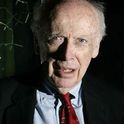There have been few moments more immediately stressful in my life than the 30 seconds after I handed what I believed to be my passport to a delightful woman at the British Airways check-in desk at Heathrow airport. She opened it, looked at it, and handed it back to me, open on a picture of my boyfriend’s face. “Ah,” I said, before stating the obvious, “that’s not my passport.”
You can imagine the aftermath. Panic. Alarm in the queue. Fraught phone calls. A frenzied search of my bag, where I found my own passport in a back pocket. The realisation that I had an hour and a half before my flight took off to Munich. Remembering that my boyfriend needed his passport the very next morning to board a flight to the United States.
This was a rather inauspicious beginning to the two months I am spending in Munich on an international exchange programme for journalists. I did eventually resolve the passport debacle by checking it into some lockers owned by an excess baggage company—happily my boyfriend’s flight the next day was also from Heathrow. “These things happen,” he said rather graciously on the phone before I took off.
On one level he was right: these things do happen. But, as I sat exhausted on the plane having dashed through the airport, I began to suspect that my silly mistake wasn’t just bad luck, but the product of a brain that had fallen asleep on the job.
I have historically been slightly sceptical of the concept of “burnout”, as I often am of mental health buzzwords that I perhaps unfairly assume have their origins in social media memes. In fact, the term “burnout” was coined by the American psychologist Herbert Freudenberger in the 1970s to describe the exhaustion, overwhelm and listlessness he observed in members of caregiving professions, like nurses and doctors.
Since then, the term has been applied more liberally to people experiencing “a state of physical, mental, and emotional exhaustion,” according to the charity Mental Health UK. When I look at mothers working fulltime while raising young children, or paramedics facing relentless shifts in an under-resourced NHS, or farmers who are up working the fields at the crack of dawn, I find it difficult to believe that a young remote worker with no caring responsibilities like me could possibly be burned out. If I’m burned out, who isn’t?
But in the hours, days and weeks since passport-gate, I couldn’t ignore the fact that I had plummeted into a state of total exhaustion. I struggled to lift my head from the pillow in the morning, to make it through the day without collapsing onto the sofa. I had no desire to do anything but sit and watch re-runs of BBC sitcoms from the noughties (hello, Outnumbered) and order takeaway food.
When I mentioned this to my friends, they weren’t surprised to hear it. They pointed out that in the past six months, I have gone from living in Athens to reuniting with family in England, to reporting from refugee camps in Calais and Dunkirk, to starting a fellowship in Germany. That I have made more new friends and said more goodbyes, experienced more wild highs and truly traumatic lows in the last few months than I had in several years. I had binged on experiences, good, bad and ugly, and was now paying the price.
“Perhaps,” said my weary father on the phone, “you could just rest?” Resting wasn’t something I had considered until he suggested it, as with a history of depression, I am always nervous about the potential for some well-intentioned relaxation to descend into not leaving the house for days. But as my current state didn’t have the frenzied, agitated feel that accompanies a depressive episode for me, I decided to give resting a go.
I’m not one to do anything by halves. At the weekend, I set myself the challenge of resting until I was bored of rest. I slept for 12 hours, ordered a curry and watched several episodes of Celebrity Traitors and the new Downton Abbey film (it’s terrible). I took myself to the pretty Bavarian town of Bamberg and just wandered aimlessly, before sitting in a cafe and staring into space. I ate a bratwurst from a market and then drank a gin cocktail in the bath. I walked along the river for hours with no destination in mind.
This kind of self-indulgence probably isn’t a medically licensed cure for burnout. But I did spring out of bed on Monday morning, ready to write.













